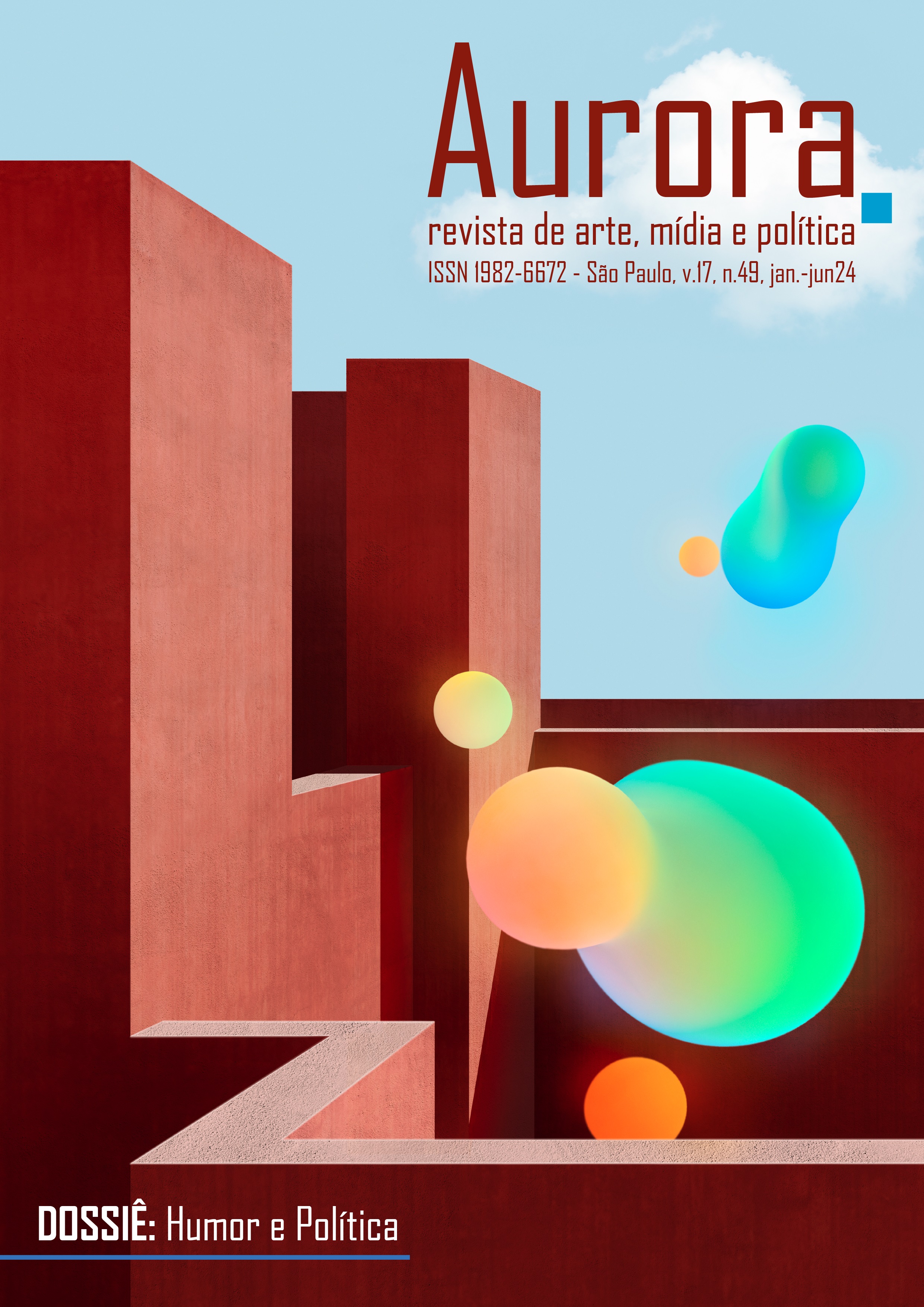Formação de sentido em charges políticas de extrema direita
uma análise à luz dos estudos da linguagem
DOI:
https://doi.org/10.23925/1982-6672.2024v17i49p29-49Resumo
Este estudo investiga a formação de sentido nas charges de Jota Camelo, utilizando a ferramenta analítica da Integração Conceitual (FAUCONNIER; TURNER, 2002), juntamente com os conceitos de frame (FILLMORE, 1976) e frame moral (LAKOFF, 2004). A análise se concentra no humor gerado pela integração de conceitos para formar entidades conceptuais complexas veiculadas pela linguagem. Adotando uma abordagem qualitativa (SILVERMAN, 2000; GIL, 1991) e influenciada pela metodologia venatória de Ginzburg (1989), busca-se identificar padrões nos processos de integração de conceitos para a formação de sentido, que leva ao humor. O objeto de pesquisa são as operações de formação de sentido nas charges, que leva à compreensão da criação e interpretação do humor em contextos satíricos, especialmente nas charges de extrema direita.
Referências
ATTARDO, Salvatore. The Routledge Handbook of Language and Humor. Routledge, 2017.
________. Humorous Texts: A Semantic and Pragmatic Analysis. Reprint 2010, De Gruyter Mouton, 2010, https://doi.org/10.1515/9783110887969.
BAKHTIN, Mikhail. Esthétique de La Création Verbale. Gallimard, 1984.
FAUCONNIER, Gilles. Mental Spaces. Cambridge: MIT Press, 1984.
________. Creativity, simulation, and conceptualization. Behavioral and Brain Sciences, v.22, n.4, p.615-615, 1999.
FAUCONNIER, Gilles; TURNER, Mark. The way we think: conceptual blending and the mind’s hidden complexities. New York: Basic Books, 2002.
FELINTO, Erick. Me parecer verdadeiro pelo contexto Olavo de Carvalho, Conspiracionismo e a Desinformação como Programa político. Revista Eco-Pós, v.26, n.01, p.12–30. 2023. https://doi.org/10.29146/eco-ps.v26i01.28143.
FILLMORE, Charles. Frame semantics and the nature of language. In: HARNARD, Steven R.; STEKLIS, Horst D.; LANCASTER, Jane. (eds.) Origins and evolution of language and speech. Nova York: New York Academy of Sciences, 1976.
GIL, Antonio Carlos. Métodos e técnicas de pesquisa social. São Paulo: Atlas, 1991.
GINZBURG, Carlo. Sinais: raízes de um paradigma indiciário. In: ______. Mitos, emblemas, sinais: morfologia e história. Tradução de Federico Carotti. São Paulo: Companhia das Letras, 1989. p.143-179.
LAKOFF, George. Don't Think of an Elephant! Know Your Values and Frame the Debate: the Essential Guide for Progressives. White River Junction: Chelsea Green Pub. Co, 2004.
________. Metaphor, Morality, and Politics, Or, Why Conservatives Have Left Liberals In the Dust. Social Research, vol. 62, n. 2, p. 177–213, 1995.
________. Moral Politics: How Liberals and Conservatives Think. Third edition, The University of Chicago Press, 2001.
________. The Political Mind: Why You Can’t Understand 21st-Century Politics with an 18th-Century Brain. Viking, 2008.
MORREALL, John, editor. The Philosophy of Laughter and Humor. State University of New York Press, 1987.
SILVERMAN, David. Doing qualitative research: a practical handbook. London: Sage Publications, 2000.
Downloads
Publicado
Como Citar
Edição
Seção
Licença
Copyright (c) 2024 Aurora. Revista de Arte, Mídia e Política

Este trabalho está licenciado sob uma licença Creative Commons Attribution 4.0 International License.










